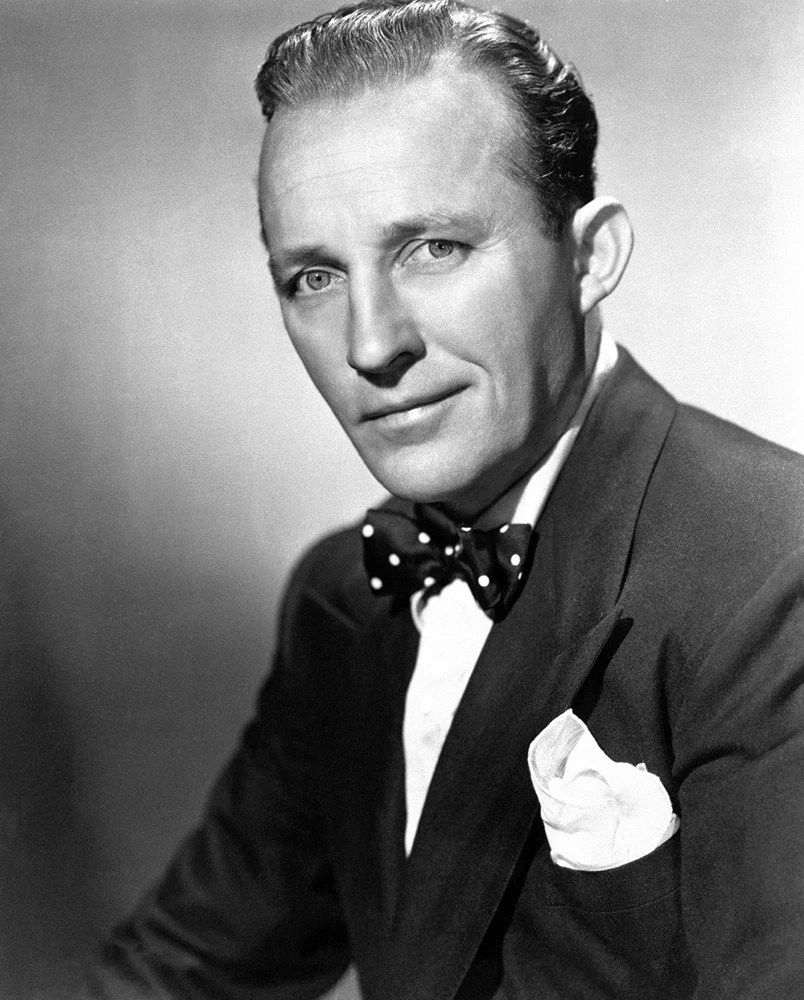Bing Crosby is a name that resonates with music lovers and film enthusiasts alike. His contributions to the entertainment industry in the 20th century were nothing short of revolutionary. As a singer, actor, and producer, Crosby's influence extended far beyond his remarkable vocal talent. He was a pioneer in popularizing the concept of the modern recording artist and set new standards for how music was produced and consumed. In this article, we will delve deep into the life and legacy of Bing Crosby, exploring his early years, career highlights, personal life, and the lasting impact he has made on the world of entertainment.
We will also look into his biographical details, notable achievements, and some fascinating trivia that may surprise you. Whether you are a lifelong fan or just discovering his work, this comprehensive overview of Bing Crosby will provide you with valuable insights into why he remains a significant figure in American culture.
Join us as we embark on a journey to explore the life of Bing Crosby, an icon whose voice continues to echo through time and whose contributions to music and film have left an indelible mark on history.
Table of Contents
- 1. Biography of Bing Crosby
- 2. Early Years
- 3. Career Highlights
- 4. Personal Life
- 5. Musical Style and Influence
- 6. Awards and Recognition
- 7. Legacy of Bing Crosby
- 8. Conclusion
1. Biography of Bing Crosby
| Full Name | Bing Crosby |
|---|---|
| Date of Birth | May 3, 1903 |
| Place of Birth | Tacoma, Washington, USA |
| Date of Death | October 14, 1977 |
| Occupation | Singer, Actor, Producer |
| Genres | Traditional Pop, Jazz, Country |
| Years Active | 1926 – 1977 |
2. Early Years
Bing Crosby was born Harry Lillis Crosby in Tacoma, Washington. His parents were Catherine Helen (née Grayson) and Harry Lowe Crosby. From a young age, Crosby showed a passion for music, often singing in local choirs and performing in school productions. After high school, he moved to Los Angeles to pursue a career in music and entertainment.
In the 1920s, Crosby began performing in various bands and quickly gained recognition for his smooth baritone voice. His big break came when he joined the Paul Whiteman Orchestra, where he became a featured vocalist. This opportunity allowed him to showcase his talent on a larger scale, leading to his first recordings and a growing fanbase.
3. Career Highlights
Crosby's career took off in the 1930s, and he quickly became one of the most popular entertainers of his time. He starred in numerous films, including the classic "Going My Way" and "White Christmas," which remain beloved to this day. Crosby's ability to blend music and acting set him apart from his contemporaries, and he became a household name.
3.1 The Rise of Bing Crosby
During the 1930s and 1940s, Bing Crosby's radio show, "The Bing Crosby Show," garnered a massive audience, showcasing his charm and wit. His innovative use of technology, such as the introduction of the microphone, allowed him to create a more intimate listening experience, revolutionizing the way music was recorded and performed.
3.2 Iconic Songs and Albums
- "White Christmas" – One of the best-selling singles of all time.
- "Swinging on a Star" – A Grammy-winning song that showcased his vocal range.
- "I'll Be Home for Christmas" – A poignant holiday classic.
4. Personal Life
Bing Crosby's personal life was marked by both triumphs and challenges. He was married twice, first to Dixie Lee, with whom he had four sons. After Lee's death, Crosby married Kathryn Grant, with whom he had three children. Despite his professional success, Crosby faced struggles, including difficulties in his relationships and battles with depression.
5. Musical Style and Influence
Crosby's musical style was characterized by his smooth, relaxed vocal delivery and his ability to convey emotion through song. He was known for his unique phrasing and timing, which set the stage for future generations of singers. His influence can be seen in the work of artists such as Frank Sinatra and Dean Martin, who cited Crosby as a major inspiration.
6. Awards and Recognition
Throughout his illustrious career, Bing Crosby received numerous accolades, including:
- Academy Award for Best Actor for "Going My Way" (1944)
- Golden Globe Award for Best Actor in a Motion Picture Musical or Comedy
- Grammy Lifetime Achievement Award
7. Legacy of Bing Crosby
Bing Crosby passed away in 1977, but his legacy lives on. He is remembered as one of the most influential entertainers of the 20th century, shaping the music and film industries in profound ways. His recordings continue to be celebrated, and his films remain timeless classics that are enjoyed by new generations.
8. Conclusion
In conclusion, Bing Crosby's impact on music and film is undeniable. From his early beginnings in Tacoma to his rise as a cultural icon, Crosby's journey is one of talent, innovation, and resilience. We encourage you to explore his music and films if you haven't already, and share your thoughts in the comments below. Join us in celebrating the life of Bing Crosby, a true legend whose voice will forever echo in the hearts of fans worldwide.
Thank you for reading! If you enjoyed this article, please consider sharing it with your friends or exploring more fascinating stories from the world of entertainment on our website.
You Might Also Like
Understanding Michael Bivins' Illness: A Comprehensive OverviewRuth B's Safe Haven: A Deep Dive Into The Meaning And Impact Of Her Iconic Song
Nickelback Net Worth 2023: An In-Depth Analysis Of The Band's Financial Success
Understanding AntsMarching.org: A Deep Dive Into The Online Community For Music Lovers And Activists
How Much Did Johnny Manziel Make? A Deep Dive Into His Earnings And Financial Journey
Article Recommendations


